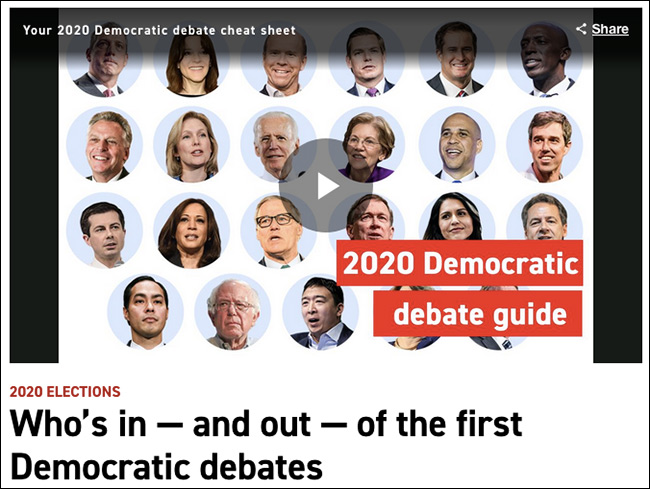Voters in four states went to the polls yesterday and two more congressional incumbents were denied renomination.
• Rep. Cliff Stearns (R-FL-6), who was placed in Florida’s new 3rd District as a result of redistricting, was upended in a crowded primary, losing 34-33 percent to veterinarian Ted Yoho who spent less than $400,000 to win the race. The new 3rd, which stretches from the Gainesville area all the way to the Georgia border, is safely Republican so it is a virtual certainty that Yoho will be joining the freshman class. Rep. Stearns, who ranks third in seniority on the Energy & Commerce Committee and chairs its Oversight & Investigations subcommittee, was originally elected in 1988 and was running for a 13th term. He becomes the 12th incumbent to lose renomination and fifth in a non-paired situation.
Just to the south in the new 7th District, Rep. John Mica (R) easily defeated freshman Rep. Sandy Adams (R-FL-24) despite representing fewer constituents than she in the newly configured CD. Mica’s winning percentage was 61-39 percent. Polling had been predicting a big Mica win for weeks, which clearly came to fruition last night.
Rep. Connie Mack IV (R-FL-14) turned back a late challenge from ex-representative Dave Weldon (R-FL-15) and two others, securing a strong 59 percent of the vote. He wins the right to challenge two-term Sen. Bill Nelson (D) in what looks to be a very competitive political battle.
Former state Senate minority leader Al Lawson who came within two points of defeating then-Rep. Allen Boyd in the 2010 Democratic primary, won the party nomination last night and will now square-off with 2nd District freshman Rep. Steve Southerland (R). The nature of the district favors a Southerland re-election. In the new open 6th District, attorney and Iraq War veteran Ron DeSantis, backed with Club for Growth support, won a big Republican primary victory in the Daytona Beach seat and will claim the safe GOP region in November. An upset occurred in the Orlando area’s 9th District as Osceola County Commissioner John Quinones lost the GOP nomination to attorney Todd Long. Quinones was being touted as a Republican challenger who could defeat former Rep. Alan Grayson (D-FL-8), who is attempting a comeback in this largely Hispanic and Democratic district.
Other Florida primary winners are Rep. Allen West (R-FL-22) in the new 18th District, and radio talk show host and Club for Growth-backed Trey Radel in Connie Mack’s open seat (the Mack family had also endorsed Radel). Chauncey Goss, son of former Rep. and CIA Director Porter Goss, placed second in a crowded field. In the new 22nd District, also as expected, former West Palm Beach mayor Lois Frankel (D) will face former state House majority leader Adam Hasner (R) in a race that will favor the Democrat. In the new 26th District, former two-time congressional candidate Joe Garcia won a decisive Democratic primary victory and will again face freshman Rep. David Rivera (R-FL-25).
• Turning to the hotly contested Wisconsin Republican Senatorial primary, as expected by most, former governor Tommy Thompson won the nomination even though almost two-thirds of the Republican primary voters chose another candidate. As is often the case in crowded fields, the best-known candidate often wins without majority support. Thompson defeated businessman Eric Hovde, former representative Mark Neumann (R-WI-1), and state Assembly Speaker Jeff Fitzgerald by a 34-31-23-12 percent margin. The former four-term governor and US Health and Human Services secretary will now face Rep. Tammy Baldwin (D-WI-2) in a highly competitive general election that could conceivably determine which of the two parties controls the Senate in the next Congress.
• Connecticut voters also chose nominees in their open Senate race. As expected, Rep. Chris Murphy (D-CT-5) easily defeated former secretary of state Susan Bysiewicz 67-33 percent. On the Republican side, 2010 nominee Linda McMahon crushed former Rep. Chris Shays (R-CT-4), 73-27 percent. Murphy is rated as a clear favorite in the general election. Sen. Joe Lieberman (I) is retiring.
In the House, former state Rep. Elizabeth Esty upset state House Speaker Chris Donovan who was besieged with problems over campaign finance irregularities in the open Democratic primary. Esty will be favored against the new Republican nominee, state Sen. Andrew Roraback in what has the potential of developing into a competitive campaign. The winner replaces Rep. Murphy.
• Finally, in Minnesota, state Rep. Kurt Bills won the Republican nomination and essentially the right to lose to first-term Sen. Amy Klobuchar (D) in November. On the House side, all incumbents won renomination and former Rep. Rick Nolan (D), who left office in 1980, will challenge freshman Rep. Chip Cravaack (R) in the Iron Range 8th District. Nolan won a 39-32 percent victory over former state Sen. Tarryl Clark who actually was the 2010 Democratic nominee in the 6th District against Rep. Michele Bachmann (R). It was clear that Iron Range Democrats rejected Clark’s carpet bagging maneuver. The Cravaack-Nolan race will be hotly contested in November.


